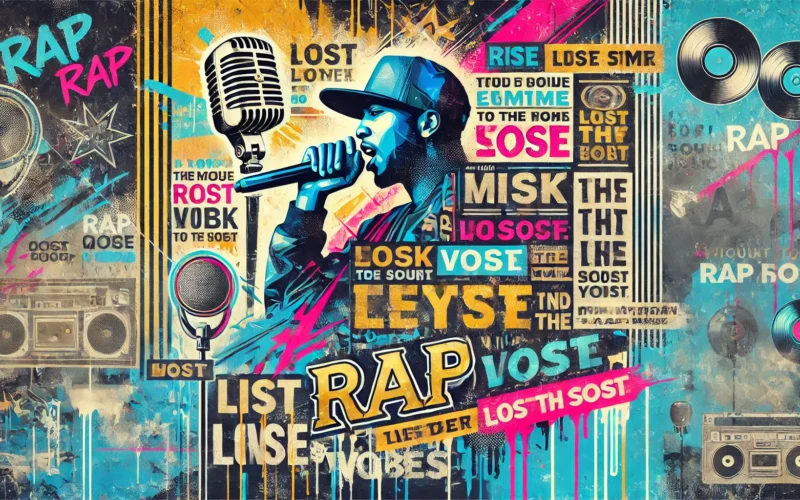Introduction
Hip-hop has always been more than just a genre of music; it’s a movement. From its roots in the streets of New York City to its global influence today, rap has spoken volumes about life, struggle, success, and identity. The rap-quotes.com blog archives serve as a living testament to this power, offering a collection of the most profound, funny, and thought-provoking rap lyrics ever written. In this article, we’ll explore the cultural significance of rap quotes, their role in personal identity, and how they resonate across different aspects of society.
Why Rap Quotes Matter
Rap lyrics often capture the essence of the human experience—pain, joy, conflict, and triumph—all in just a few bars. But what makes rap quotes even more impactful is how they transcend the music itself. The rap-quotes.com blog archives provide not just a platform for the quotes, but an opportunity to explore the context and meaning behind the lines. These words are not just lyrics; they are cultural expressions that can inspire, challenge, and reflect societal truths.
The Cultural Significance of Rap Quotes
Rap quotes are more than just catchy lines; they are a mirror to the culture that birthed them. From Tupac’s poignant commentary on systemic oppression to Kendrick Lamar’s exploration of personal growth, rap lyrics have always carried heavy cultural weight. In the rap-quotes.com blog archives, each quote is paired with insights into its meaning and impact. These quotes often reflect personal experiences and societal struggles, serving as a voice for marginalized communities.
Rap artists like Nas, Jay-Z, and Lauryn Hill have used their lyrics to speak on everything from economic inequality to social justice. In fact, many of these artists have elevated their craft to a form of social commentary, challenging listeners to reflect on their own lives and the world around them. This is what makes the rap-quotes.com blog archives so important: it goes beyond the lyrics, offering readers a deeper understanding of how each quote reflects not just the artist’s journey, but a collective cultural experience.
Rap Quotes as a Source of Empowerment
One of the most powerful aspects of rap lyrics is their ability to empower. When artists like Kanye West and Cardi B share their struggles, triumphs, and personal philosophies, they offer their listeners a sense of solidarity and encouragement. The rap-quotes.com blog archives showcases how these quotes can inspire listeners to push forward, face their challenges, and even redefine their own identities.
For instance, the line “Started from the bottom, now we here” from Drake’s hit song symbolizes the resilience of those who come from humble beginnings and rise to greatness. It’s not just a catchy line—it’s a mantra for anyone striving for success. Similarly, Jay-Z’s “I’m not a businessman, I’m a business, man” represents the entrepreneurial spirit that encourages listeners to take control of their own destinies. Through such quotes, the rap-quotes.com blog archives highlights how rap provides a framework for personal empowerment.
The Role of Social Media in Spreading Rap Quotes
In today’s digital age, rap quotes have become more than just lyrical moments—they’ve become cultural memes. Social media platforms like Instagram, Twitter, and TikTok have played a significant role in the proliferation of rap quotes, turning them into everyday expressions. The rap-quotes.com blog archives explores how these quotes are not only shared by fans but are also used by influencers, activists, and celebrities to further their own messages.
For example, many rap lyrics have become viral sensations when shared as memes or used in posts that address current events or personal milestones. The line “No role modelz” from J. Cole, often used in discussions about modern celebrity culture, has found new life on Instagram, where it’s paired with images and captions reflecting the disillusionment that many feel about fame and success. The rap-quotes.com blog archives helps contextualize these uses, showing how the lines live on in the digital landscape long after they’re first penned.
Rap Quotes as Social Commentary
Rap has long been a vehicle for social commentary, offering a raw, unfiltered look at the world through the lens of the artist. The rap-quotes.com blog archives takes this deeper by exploring how these quotes serve as reflections of societal issues. Whether it’s Kendrick Lamar’s “We gon’ be alright,” which became an anthem for racial justice during the Black Lives Matter movement, or Tupac’s “Keep ya head up,” which addresses issues of poverty and inequality, rap lyrics have always tackled the toughest topics.
These quotes, when viewed through the lens of social movements, show how rap artists have been some of the most vocal advocates for change, often speaking out against police brutality, racism, and economic disparity. The rap-quotes.com blog archives captures the essence of this activism, providing historical and social context for each quote and how it has influenced not only music but also culture at large.
The Psychological Impact of Rap Lyrics
Rap lyrics can also have a profound psychological effect on listeners. They can serve as catharsis for those who feel misunderstood or alienated, and they can offer a sense of belonging for those who identify with the struggles expressed in the lyrics. The rap-quotes.com blog archives touches on this psychological element, showing how rap quotes can act as both a mirror and a guide for individuals navigating their own emotional landscapes.
Many fans turn to their favorite rap lyrics during difficult times, finding comfort in the words that speak to their own experiences. Whether it’s Nas’ “Life’s a b****, but God forbid the b**** divorce me” or the empowering words of Beyoncé in her rap verses, these quotes offer both an escape and a roadmap. The psychological power of these lyrics is something the rap-quotes.com blog archives continues to explore in its in-depth analyses.
Why Rap Quotes Resonate Across Different Aspects of Society
One of the reasons why rap quotes have such a broad appeal is that they transcend music and influence other areas of life. From fashion and art to politics and business, rap lyrics are embedded in the fabric of modern culture. The rap-quotes.com blog archives documents these cross-disciplinary influences, showing how rap has influenced not just music, but fashion trends, political discourse, and even corporate branding.
For instance, brands like Nike and Adidas have adopted rap lyric-driven slogans in their advertising campaigns, showing the symbiotic relationship between rap culture and consumerism. Similarly, politicians and activists have referenced rap quotes in speeches and movements, underscoring the relevance and reach of rap beyond entertainment.
The Evolution and Future of Rap Quotes
Rap has evolved significantly over the years, with each era bringing new sounds, themes, and styles. The rap-quotes.com blog archives offers an exploration of how rap quotes have evolved, from the early days of Nas and Rakim to the modern works of artists like Lil Baby and Megan Thee Stallion. As hip-hop continues to grow, so too does the impact of its quotes, which remain as relevant and influential as ever.
Looking to the future, the rise of new technologies and platforms will only amplify the impact of rap quotes. With AI, virtual reality, and immersive media, it’s possible that we’ll see even more interactive ways of experiencing and sharing rap lyrics. The rap-quotes.com blog archives serves as a crucial resource in tracking these shifts and understanding how the future of rap will continue to shape culture and society.
Conclusion
Rap is not just music; it’s a powerful cultural force that influences everything from personal identity to global movements. The rap-quotes.com blog archives offers a unique lens through which we can explore the impact of these iconic lyrics. By diving deep into the meanings, cultural contexts, and social influences behind rap quotes, we gain a richer understanding of how these words shape our world. Whether for personal empowerment, social commentary, or cultural connection, rap quotes will continue to inspire, challenge, and define generations to come.

